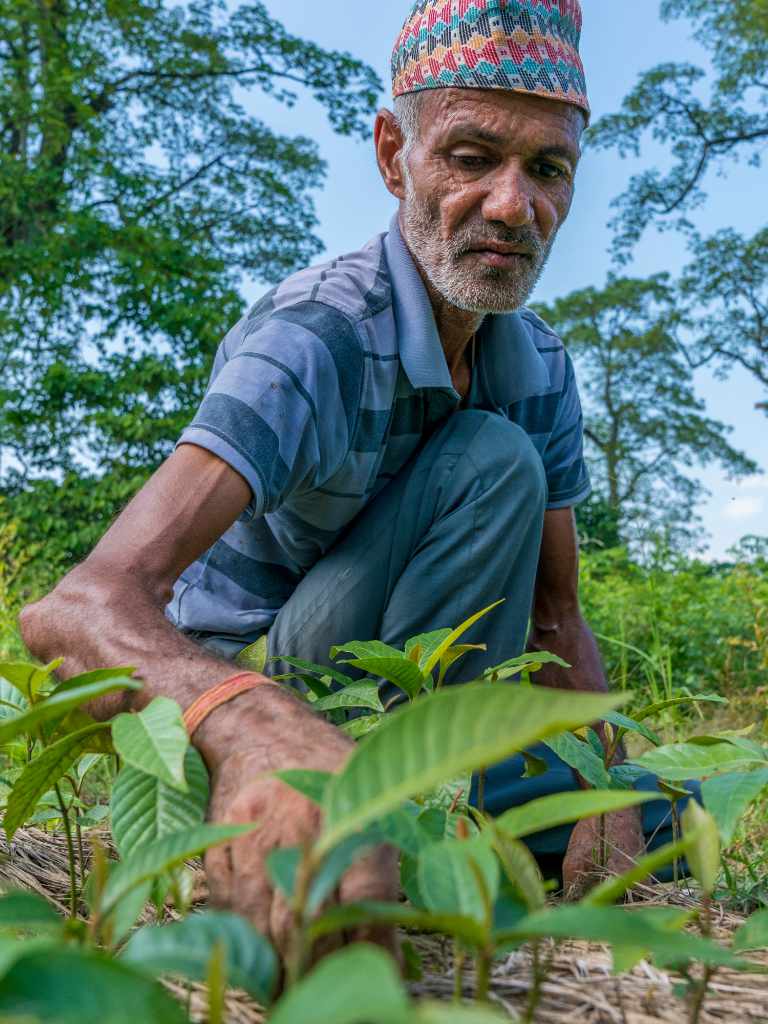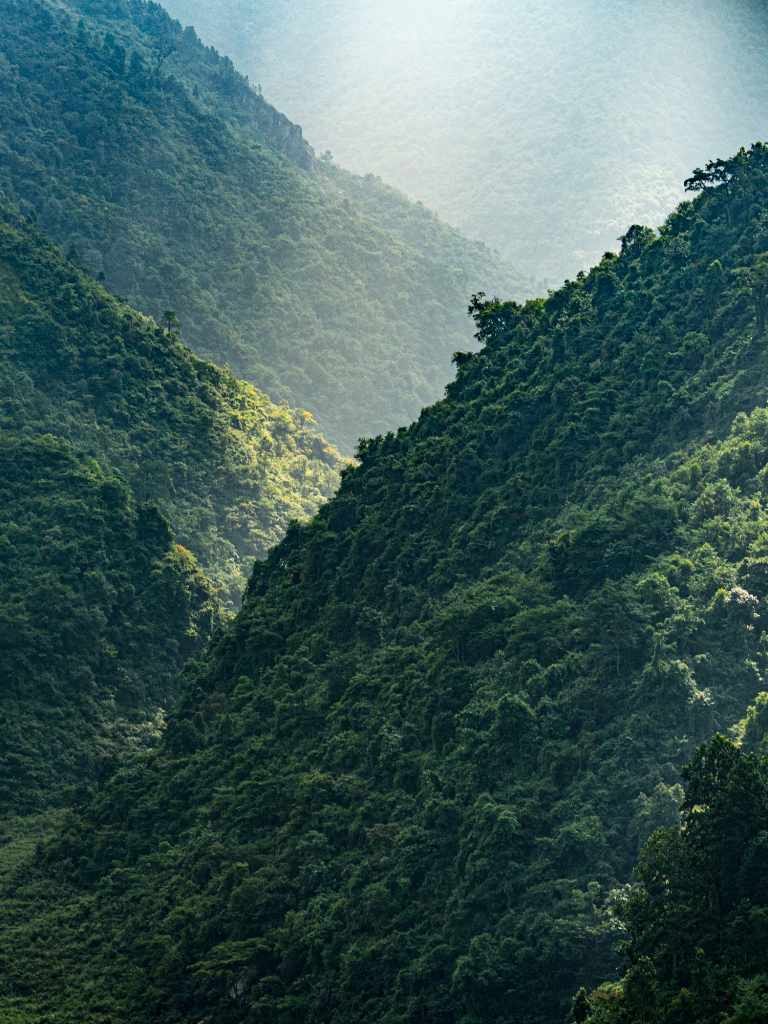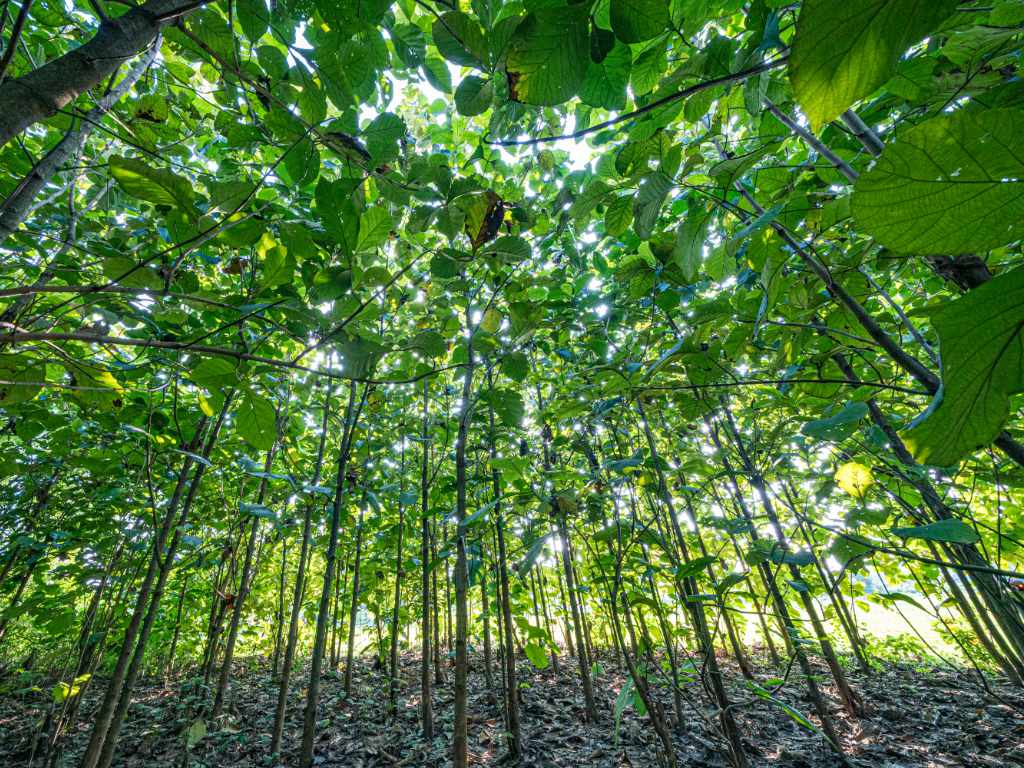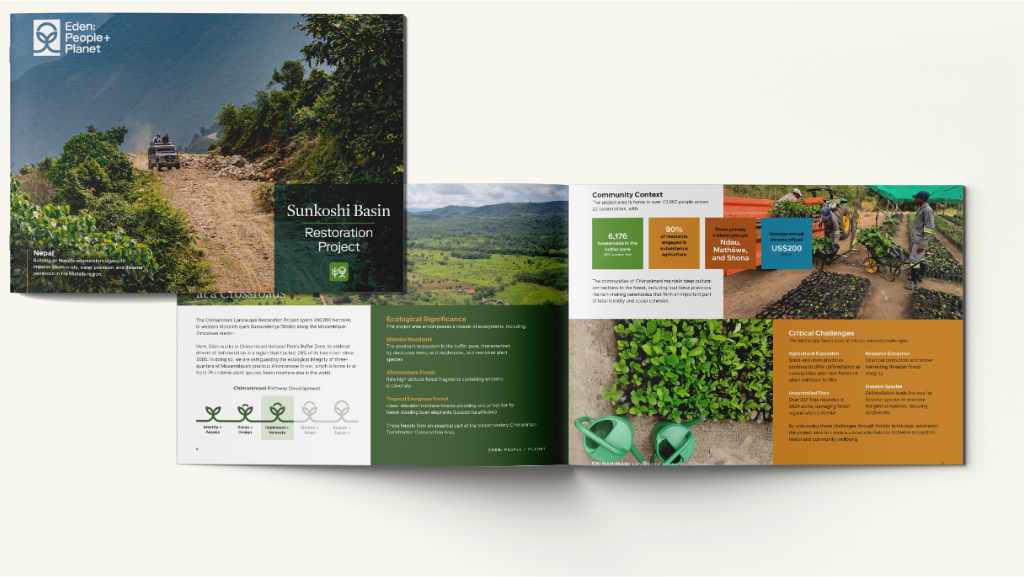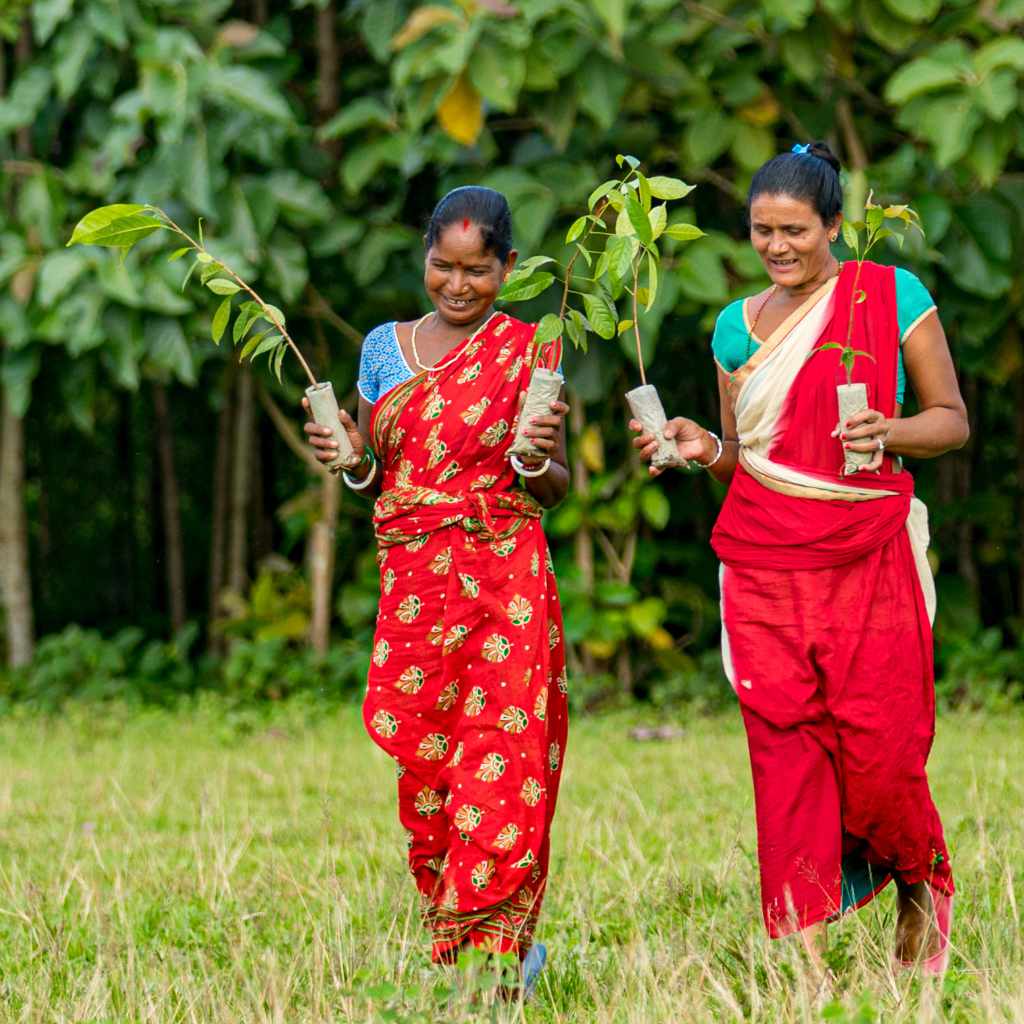
Our Projects
Sunkoshi Basin Restoration Project
Project Overview
The Sunkoshi Basin Restoration Project represents Eden’s historic accomplishments in Nepal’s Midhills region from 2015-2024, where we successfully built capacity and improved equity in community-managed forests to enhance biodiversity and support livelihoods. Unlike typical restoration landscapes, this 257,419-hectare area experienced net forest cover gain over two decades, requiring innovative approaches to enhance ecological function within existing forests.
Spanning three districts east of Kathmandu, the project connected critical buffer zones of Langtang National Park and Shivapuri Nagarjun National Park. By partnering with over 1,100 Community Forest User Groups (CFUGs), we demonstrated successful approaches to improve forest quality while addressing challenges from rural outmigration and climate change.
While Eden has closed its philanthropic operations in Nepal as part of our strategic shift to carbon-eligible landscapes, the knowledge gained from this complex governance structure and our proven CFUG engagement model continues to inform our approach to developing successful carbon projects in similar contexts worldwide.
Ecosystem
During its active period (2015-2024), Eden’s work in the Sunkoshi Basin demonstrated successful approaches to enhancing biodiversity within Nepal’s only region showing net forest gain. The 257,419-hectare landscape featured Eastern Himalayan broadleaf and subalpine conifer forests, alongside extensive pine plantations established in previous decades.
This work provided valuable insights for carbon project development in complex mosaic landscapes. While forest cover increased, the average patch size of 56 hectares highlighted fragmentation challenges that impact habitat connectivity. The landscape’s position between Langtang and Shivapuri Nagarjun National Parks made it an essential corridor for species like red panda and Himalayan black bear.
Key lessons from managing natural disaster risks, particularly landslides and forest fires intensified by climate change, continue to inform Eden’s approach to building resilient carbon projects in mountainous regions. This experience demonstrates how effective community engagement can enhance both ecological and carbon outcomes.
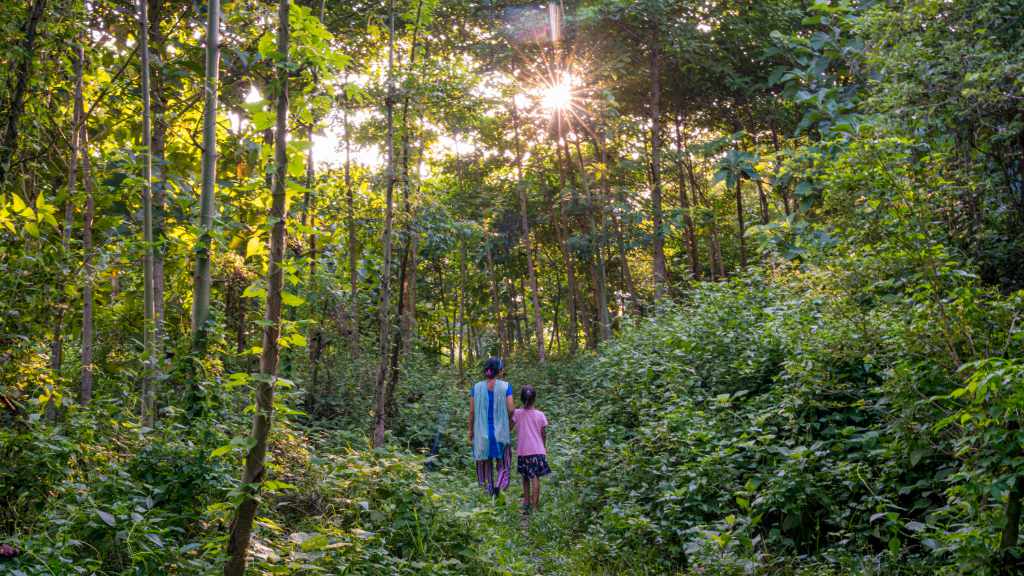
| Stat Label | Stat Value |
|---|---|
| Project Area | 257,400 hectares |
| Community Partners | 1,100+ Forest User Groups |
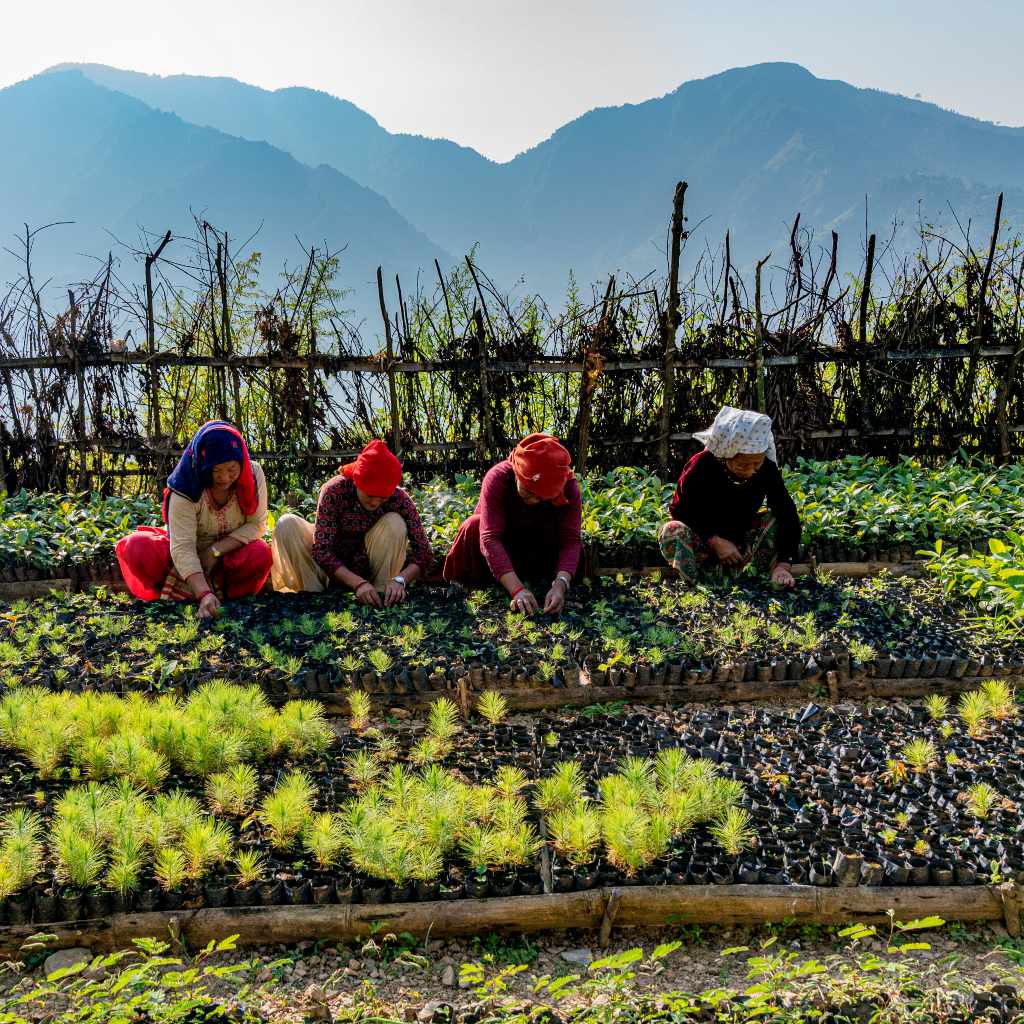
Community
During its successful 2015-2024 operations, Eden partnered with Nepal’s renowned Community Forest User Groups (CFUGs), working with over 1,100 groups managing 59,329 hectares across the Sunkoshi Basin. This collaboration demonstrated how traditional ecological knowledge could effectively integrate with modern forest management approaches, even as communities adapted to demographic changes.
While rural outmigration presented challenges for consistent forest stewardship, Eden helped strengthen CFUG capacity across a landscape serving 926,689 people from diverse ethnic groups. The project’s success in navigating complex governance structures while respecting cultural connections to forest resources and sacred sites provides valuable insights for future carbon projects.
Though Eden has concluded philanthropic operations in Nepal, the enhanced institutional capacity, improved management practices, and strengthened disaster resilience continue to benefit local communities, offering lessons for engaging similar stakeholder networks in carbon-eligible landscapes.
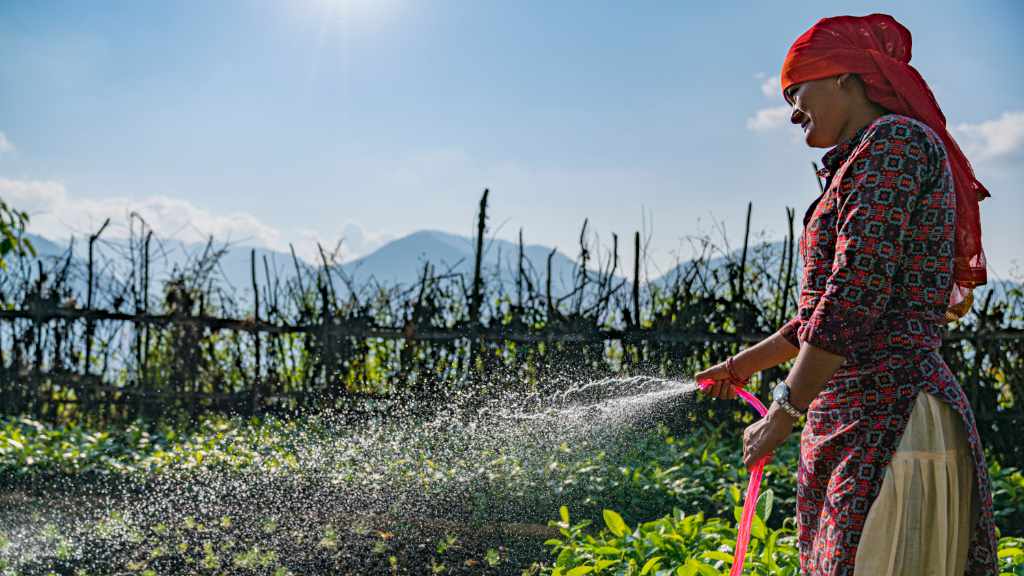
Technical Approach
Eden’s historic technical approach in the Sunkoshi Basin demonstrated successful strategies for enhancing forest quality and biodiversity in areas with existing tree cover. The project pioneered methodologies for engaging Community Forest User Groups (CFUGs) in complex governance structures.
Key interventions included assisted natural regeneration to accelerate forest recovery, enrichment planting to diversify monoculture pine stands, invasive species management, and agroforestry development to support sustainable livelihoods. Implementation leveraged a partner-based model where Eden provided technical support to CFUGs, enabling community-led restoration that integrated traditional knowledge with scientific approaches.
While philanthropic operations concluded in 2024 as part of Eden’s strategic shift to carbon-eligible landscapes, the knowledge gained continues to inform carbon project development. The demonstrated success in strengthening community institutions, improving forest quality metrics, and enhancing biodiversity provides valuable insights for future landscape restoration initiatives focused on long-term carbon sequestration.
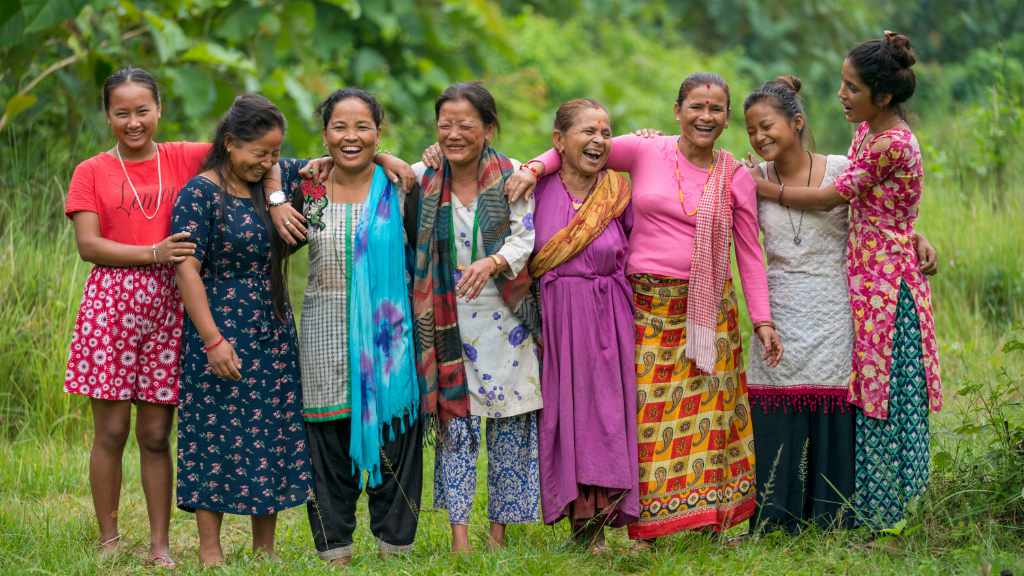
Progress and Impact
The Sunkoshi Basin Restoration Project (2015-2024) demonstrated Eden’s successful approach to landscape restoration in Nepal’s complex community forestry context. Over nearly a decade, Eden partnered with 1,100+ Community Forest User Groups across 257,419 hectares, strengthening local capacity for sustainable forest management.
Key accomplishments included restoring 2,000+ hectares, improving seven CFUG management plans, and developing effective engagement methodologies for complex governance structures. The project enhanced biodiversity within existing community forests and reduced disaster risk through improved forest quality.
While Eden has concluded philanthropic operations in Nepal as part of its strategic shift to carbon-eligible landscapes, the knowledge gained continues to inform our work. The project’s success in navigating multi-stakeholder partnerships, addressing rural outmigration challenges, and improving ecological function in net-gain forest areas provides valuable insights for developing carbon projects in similar contexts globally.

